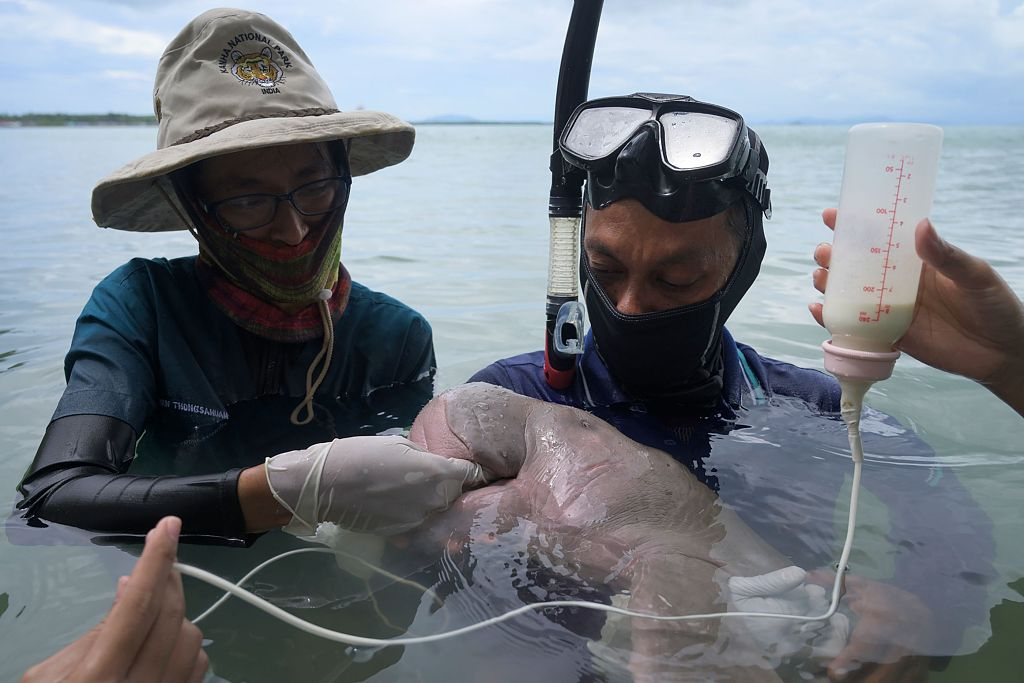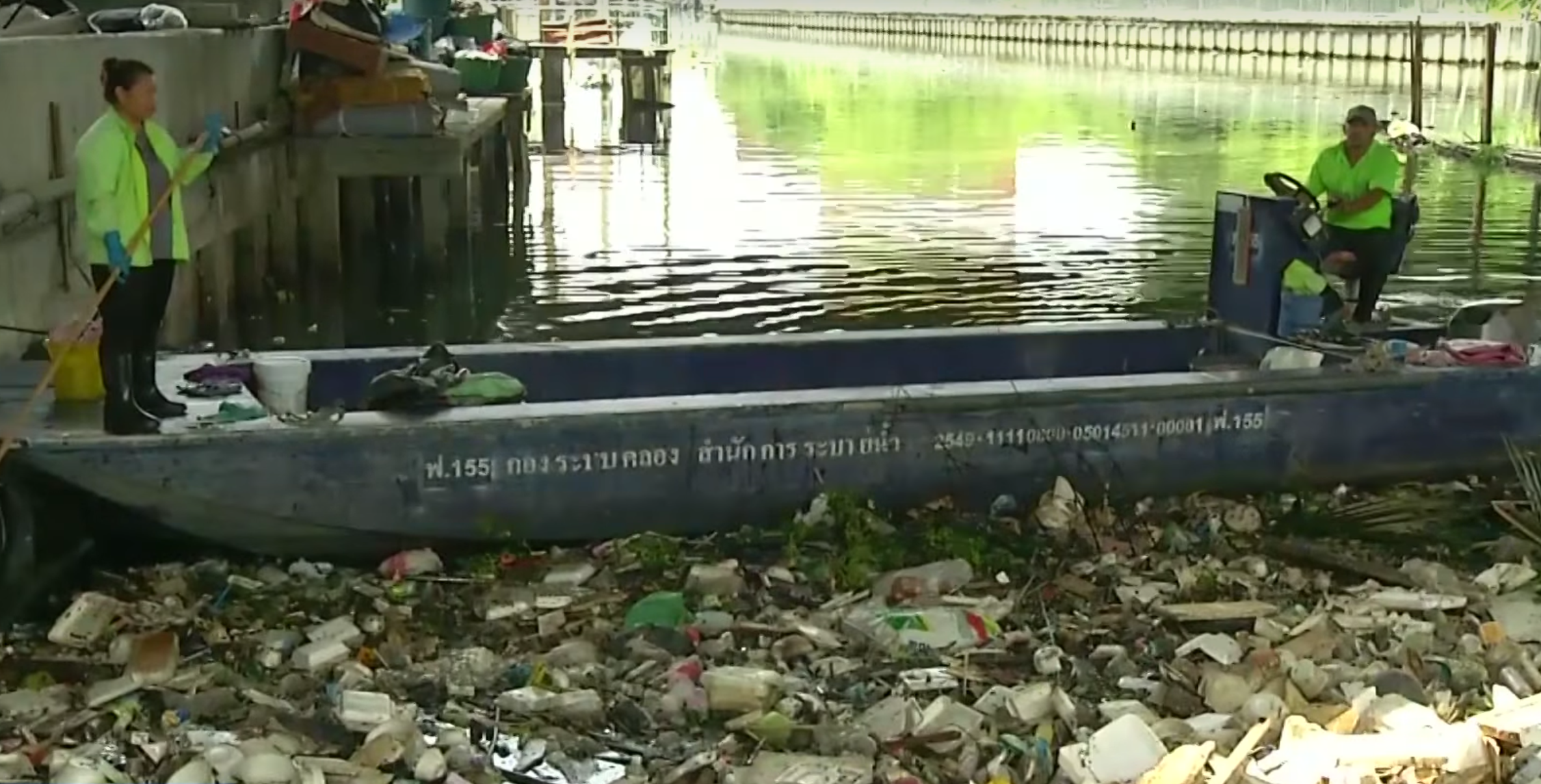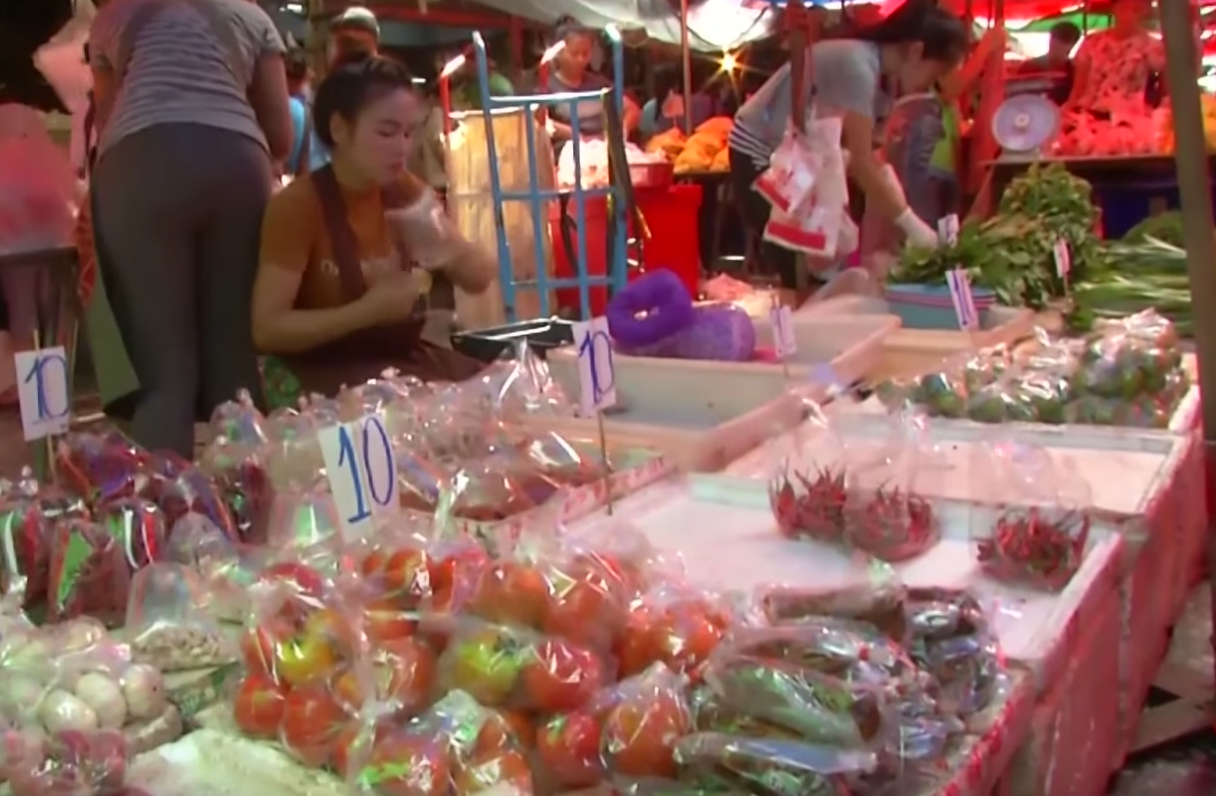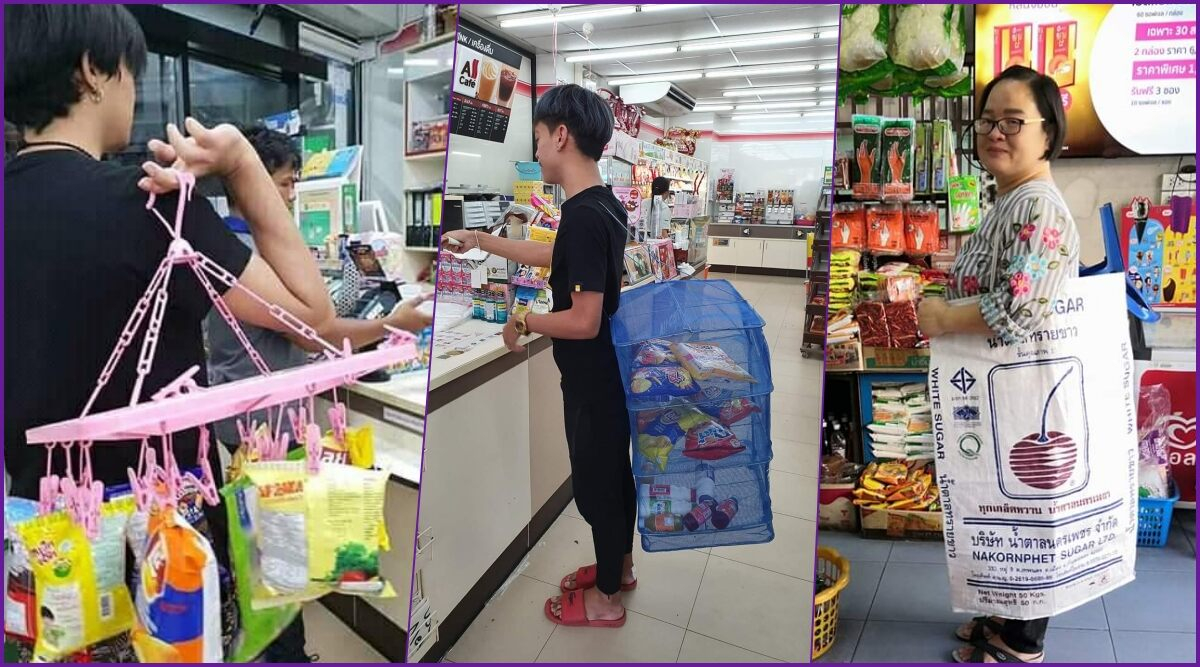
Mariam, the 8-month old dugong died from an infection exacerbated by plastic waste found in her stomach. Mariam became a symbol of conservation.
Mariam, the 8-month old dugong died from an infection exacerbated by plastic waste found in her stomach. Mariam became a symbol of conservation.
- In Thailand, single-use plastic bags have been banned at major stores since the beginning of this year as the government and retailers aim for a complete ban in 2021 to reduce waste and debris in the sea.
- In 2019, plastic bag use decreased by two billion (about 5,765 tonnes) as a result of a campaign to encourage consumers to voluntarily refuse plastic bags from stores.
Southeast Asia is a major contributor to the land-based plastic waste leaking into the world's oceans, with Thailand ranked in the top 10 countries of the largest contributor to ocean waste.
As far as New Year resolutions go, Thailand's was ambitious: a ban on single-use plastic bags at major stores around the country. It is a habit that would be hard to shake off in any plastic addicted country, and Thailand is one of them. It's the world's No.6 plastics polluter. That is in total pollution. In fact, comparing coastal populations and the size of reefs, Thailand is the worst dumper of plastic waste on Earth. The nation uses 500 million plastic bags per day, that's an average of eight bags per person.
Thailand was desperately in need of solutions. Last year, dead marine animals washed up its shore with stomachs full of plastic waste. It was the alarm that the country needed. Realizing the gravity of the plastic pollution conundrum, the tide is finally turning.
Thai Retailers Association has introduced a campaign titled "Every Day Say No to Plastic Bags", under which all its 75 members will stop providing such bags through 24,500 distribution channels, hoping to drive the country closer to a plastic waste free society. It was an agreement launched by the government and retailers to work towards a complete ban in 2021 to reduce waste and debris in the sea.

According to government statistics, the government's effort to shame plastic bag use has already caused a drastic reduction in waste. The ministry of Natural Resources and Environment said that Thailand reduced the use of plastic bags by 2 billion last year.
According to government statistics, the government's effort to shame plastic bag use has already caused a drastic reduction in waste. The ministry of Natural Resources and Environment said that Thailand reduced the use of plastic bags by 2 billion last year.
Foodland, with 23 branches across Thailand, is one of the supermarket chains that have stopped giving out plastics bags – forcing their shoppers to go green. Public awareness campaigns began last year to encourage consumers to voluntarily refuse plastic bags from stores.
"In 2015, our stores used around 27 million plastic bags. Last year, we reduced that amount to 20 million plastic bags. That's around 25 percent decrease in 5 years," said Somkid Sanprasertsuk, Foodland's vice president of operation, "from today, I'm hoping to get to zero."
Many shoppers were on board, ready to adapt to the new plastic-free way of life.
"I think this will help our rubbish problem. It's better if we don't use plastic. The environmental damage, the pollution- it all comes from plastic," said one shopper.
Such a ban is considered a major victory for environmentalists. It is, however, a nightmare scenario for plastic manufacturers. Plastic bag factories are suffering from the ban, many at risk of shutting down if the government does not provide some form of assistance.
"The effects are severe as the government changed the roadmap from 2022 to 2020 - two years ahead of schedule," says Somchai Techapanichgul, President of Thai Plastic Industries Association, "we stand to make a loss of over 650 million U.S. dollars, around 7-8000 employees face unemployment."

The country's biggest challenge is to get rid of the remaining 40% of plastic bags used at fresh markets and in rural areas.
The country's biggest challenge is to get rid of the remaining 40% of plastic bags used at fresh markets and in rural areas.
Things are bound to get worse for plastic manufacturers when the ban hits fresh markets, which uses around 40 percent of the country's plastic bags. Meat, ice, vegetables, fruit, rice; practically everything is thrown into a plastic bag.

Many Thai shoppers are creatively adapting to a new ban on single-use plastic bags with images being shared across social media. (Photo: Facebook/ROV)
Many Thai shoppers are creatively adapting to a new ban on single-use plastic bags with images being shared across social media. (Photo: Facebook/ROV)
Thailand's government plans to introduce legislation to ban all single-use plastic in two years. In the meantime, across social media, Thai's are busy getting creative with unorthodox ways of carrying groceries, in a country where plastic has now been declared the enemy.